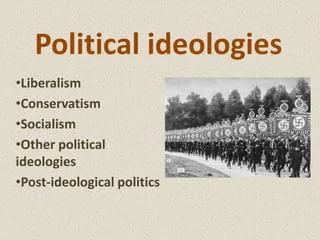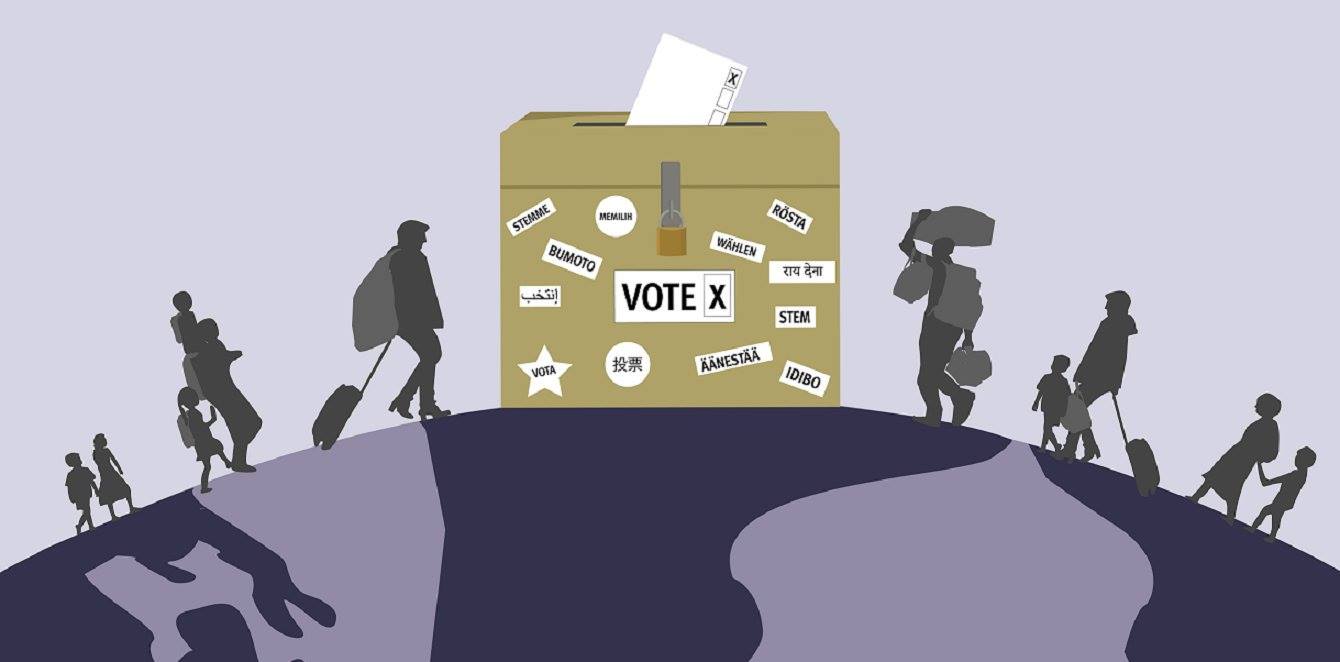A Closer Look at the Impact of Different Political Ideologies
These ideologies shape the beliefs, values, and goals of political parties and leaders, ultimately influencing the direction a government takes.

Comparing and Contrasting Political Ideologies: Their Impact on Policy Decisions
Political ideologies are the driving forces behind the formation and implementation of policies in any society. These ideologies shape the beliefs, values, and goals of political parties and leaders, ultimately influencing the direction a government takes. This article explores various political ideologies, including liberalism, conservatism, socialism, and libertarianism, and analyzes their impact on policy decisions. By understanding the fundamental principles of each ideology and their real-world applications, we can gain insights into the complexities of modern governance.
Liberalism
Liberalism is a political ideology that emphasizes individual rights, personal freedom, and limited government intervention in the economy. Liberals advocate for social equality, environmental protection, and policies that support diversity and inclusion. In the realm of policy decisions, liberalism often leads to:
Social Welfare Programs: Liberal governments tend to support robust social safety nets, including healthcare, education, and unemployment benefits, to reduce inequality and ensure a basic standard of living for all citizens.
Environmental Regulations: Liberals prioritize environmental protection through regulations on industries, emissions control, and conservation efforts.
Civil Rights and Liberties: Policies such as same-sex marriage legalization, anti-discrimination laws, and criminal justice reform are typically championed by liberal governments.
Conservatism
Conservatism is an ideology that values tradition, limited government involvement in the economy, and a strong national defense. Conservative policies often include:
Tax Cuts: Conservative governments favor reducing taxes to stimulate economic growth and allow individuals to keep more of their income.
Deregulation: Conservatives believe in reducing government regulations on businesses, arguing that it fosters innovation and job creation.
Traditional Values: Policies that support traditional family structures, pro-life stances on abortion, and a tougher approach to law and order align with conservative values.
Socialism
Socialism is an ideology rooted in the idea of collective ownership and control over the means of production and wealth distribution. Socialist policies commonly include:
Income Redistribution: Socialist governments aim to reduce income inequality through progressive taxation and wealth redistribution programs.
Nationalization: Key industries such as healthcare, education, and utilities are often nationalized to ensure equal access to essential services.
Workers' Rights: Strong labor protections, including minimum wage laws and worker cooperatives, are central to socialist policy decisions.
Libertarianism
Libertarianism promotes individual liberty, minimal government interference, and free-market capitalism. Policy decisions influenced by libertarian principles often include:
Tax Reduction: Advocates for lower taxes, limited government spending, and reduced public services to minimize the state's role in citizens' lives.
Free Markets: Policies favoring deregulation, privatization, and open competition are hallmarks of libertarianism.
Personal Freedom: Libertarianism supports individual rights such as drug legalization, same-sex marriage, and limited government surveillance.
Comparing and Contrasting Political Ideologies
To better understand the impact of these ideologies on policy decisions, let's compare and contrast them:
Role of Government:
Liberalism and socialism tend to support a more significant role for government in regulating and providing services.
Conservatism and libertarianism advocate for limited government involvement and greater individual autonomy.
Economic Policies:
Liberals and socialists favor income redistribution and economic regulations.
Conservatives and libertarians prioritize free-market capitalism and deregulation.
Social Policies:
Liberals and socialists emphasize civil rights, social welfare, and equality.
Conservatives and libertarians prioritize traditional values, personal freedom, and limited government interference.
Environmental Stewardship:
Liberals and some socialists tend to support strong environmental regulations.
Conservatives and libertarians often advocate for less stringent environmental policies.
Foreign Policy:
Conservatism may support a robust national defense and interventionist foreign policies.
Liberalism may favor diplomacy and international cooperation.
The Evolution of Political Ideologies and Their Impact on Modern Politics
As societies evolve, so do political ideologies. Over time, these ideologies have adapted to address new challenges and shifting societal norms. Let's explore how these ideologies have evolved and their contemporary impact on policy decisions:
Liberalism:
Classical Liberalism: Classical liberalism, which emerged in the 18th and 19th centuries, emphasized limited government interference in the economy and individual liberty. Its legacy can be seen in modern-day economic policies like free trade agreements and the protection of civil liberties.
Modern Liberalism: Modern liberalism, also known as social liberalism, has incorporated a stronger focus on government intervention to address social and economic inequalities. It supports policies such as universal healthcare, progressive taxation, and increased environmental regulations.
Conservatism:
Traditional Conservatism: Traditional conservatism, rooted in preserving established institutions and values, continues to influence policies related to family values, religion, and national security.
Fiscal Conservatism: Some conservatives prioritize fiscal responsibility and advocate for reducing government spending and debt. This aspect of conservatism can be seen in calls for tax cuts and smaller government.
Socialism:
Democratic Socialism: In many Western countries, socialism has evolved into democratic socialism, which seeks to combine elements of socialism with democratic political systems. It advocates for social safety nets and progressive taxation while maintaining democratic governance.
Market Socialism: A modern variant of socialism is market socialism, which envisions a mix of state-owned and worker-owned enterprises operating within a market economy. This approach seeks to combine economic efficiency with social welfare.
Libertarianism:
Minarchism: Some libertarians argue for a minimal government that only provides essential services like defense and law enforcement. This philosophy aligns with calls for reducing government size and intervention in various aspects of life.
Techno-Libertarianism: In the digital age, techno-libertarians emphasize personal freedom and privacy in the face of technological advancements. They may push for policies addressing internet censorship and surveillance.
Contemporary Impact on Policy Decisions
Today, political ideologies continue to influence policy decisions in various ways:
Polarization: The ideological divide in politics has led to increased polarization, making it challenging for governments to find common ground on critical issues. This polarization can stall policy-making and hinder progress.
Hybrid Approaches: Many governments adopt hybrid approaches that incorporate elements of different ideologies. For example, a government might embrace market capitalism while maintaining a strong social safety net, reflecting a balance between liberalism and socialism.
Policy Flexibility: Political ideologies are not rigid templates. Parties and leaders may adapt their stances to address changing circumstances. For example, a conservative government may introduce environmental policies to address climate change concerns.
Globalization: In an interconnected world, political ideologies must adapt to global challenges. International trade agreements, climate change agreements, and responses to global crises often require a nuanced approach that transcends traditional ideological boundaries.
Populism: Populist movements have gained momentum, challenging established political ideologies. Populist leaders often appeal to discontented citizens by promising radical changes, making it essential to analyze the policy implications of populism.
Political ideologies remain a driving force in shaping policy decisions, but they are not static. They evolve in response to societal changes, and their impact on governance is multifaceted. Understanding the dynamic nature of political ideologies is crucial for citizens and policymakers alike as they navigate the complexities of modern politics and strive to create policies that meet the evolving needs of society.
What's Your Reaction?
















